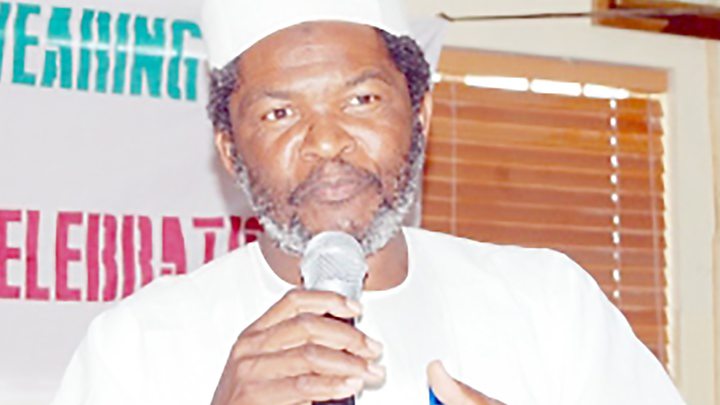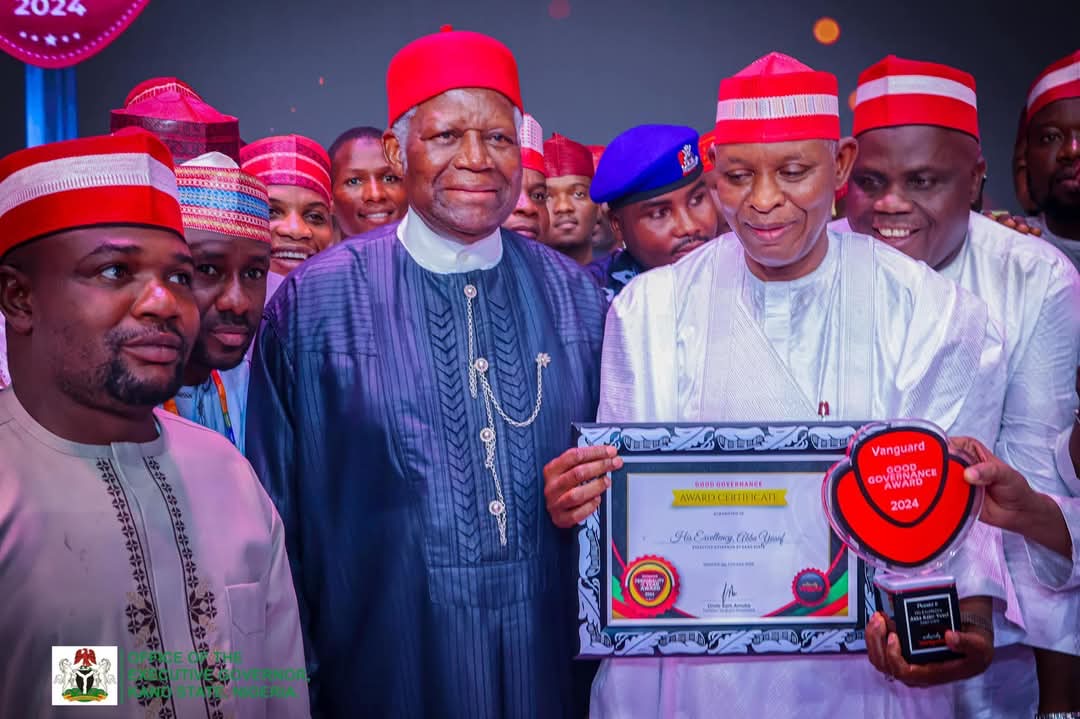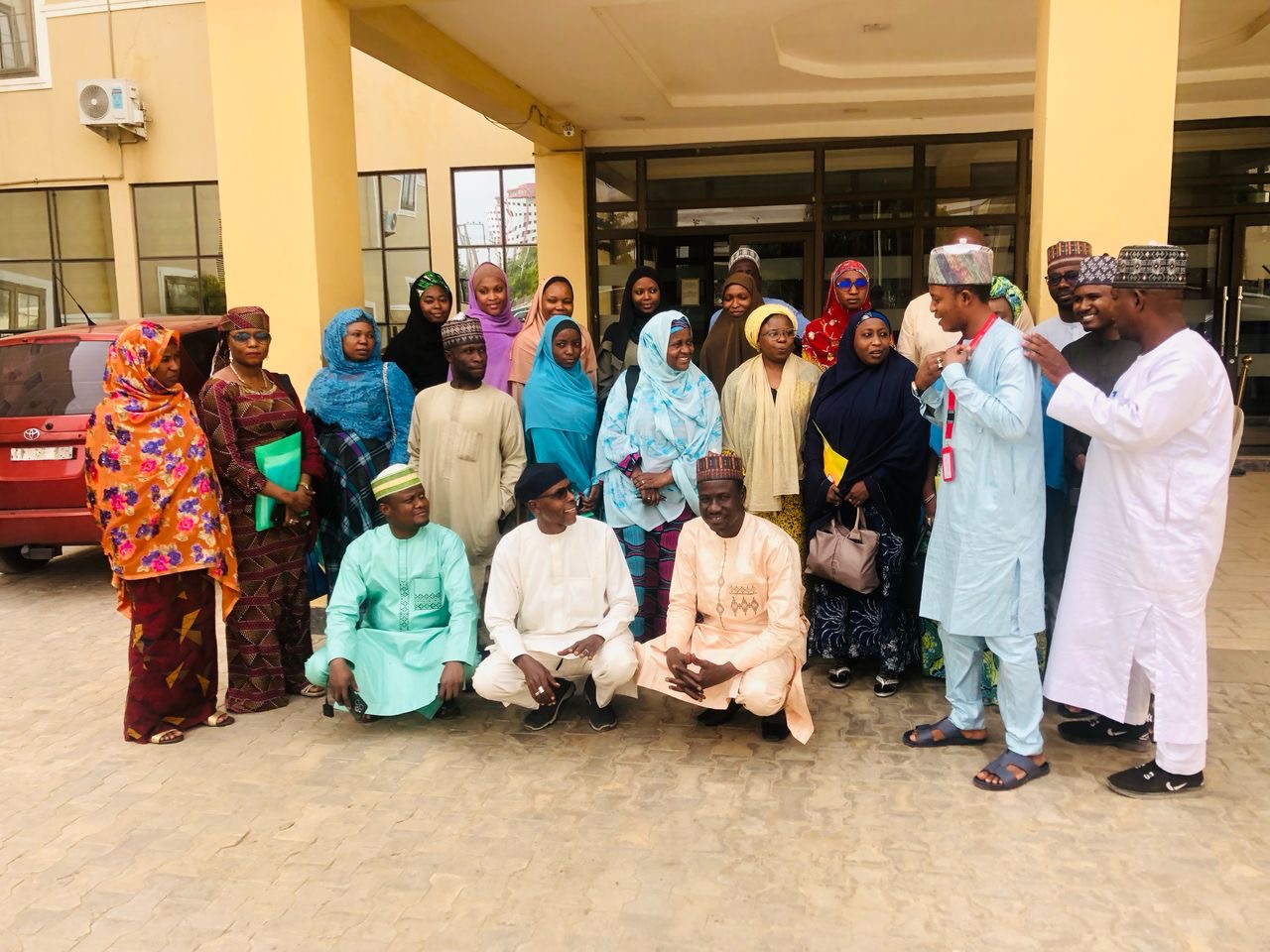Headlines
Kano Council of Ulama rejects Ganduje’s Almajiri ban

Nasiru Yusuf
The Kano State Council of Ulama has rejected Governor Abdullahi Ganduje’s decision to proscribe child beggars popularly known as almajirai from roaming the streets across the state to beg for alms.
Mr Ganduje, who announced the ban on Tuesday also threatened to arrest and prosecute any parent that allows their children to roam the streets.
The governor warned that henceforth any teacher with pupils under the Almajiri school arrangement must accept the new approach put in place by the state government, explaining that, “if you think you cannot accept that then you leave the state.”
“When beggars are caught, it is not only that beggar is caught, but his parents or guardians. Such parents or guardians would be taken to court for disrespecting our laws,” Mr Ganduje said.

‘Not serious’
However, in an interview with KANO FOCUS on Wednesday, Chairman of the Ulama Council, Sheikh Ibrahim Khalil said the ban on almajirai “is not feasible and the government is not serious”.
According to him, necessary steps towards curtailing the practice have not been taken or put in place before taking the decision.
“To us at the Council of Ulama, the government can not do it and is not serious about it. They are just doing it to appease their masters abroad, or get their money or some kind of noise making.
“Or they might have been accused of something from somewhere for which they simply organise a ceremony and that is all. That is our opinion” he said.
Different type of beggars
Sheikh Khalil, a renowned Islamic scholar, who had advocated against street begging gave a brief history of efforts made in the past to curtail the menace but failed “because serious and necessary measures were not taken.”
He said the real street beggars should be identified.
“The right steps to follow in banning street begging include: the Quranic clerics involved have to be identified because there are street beggars who are Quranic students.
“And there are beggars who were sent by their parents from the rural areas to come and be begging in the urban areas, there is also another form of begging by some physically challenged individuals.
“All these forms of street beggars need to be identified and each one addressed accordingly. But they have not done that.
“So, for the ban to work, there has to be a cooperation between the government and the Quranic clerics. You have to sit with them and understand why they engage in begging, get some statistics, know the total number of those engaging in street begging among them.
“If you identify all these, it is then that you will come to know exactly beggars that are not Almajiris Quranic students,” Sheikh Khalil explained.
‘Join hands with neighbouring states’
The cleric also observed that Kano state cannot unilaterally end street begging without collaborating with neighboring states.
“More so, you can not stop begging in the state without joining hands with the neighbouring states.
“If you recall, there was the case of a man who sent three of his children to the city to be begging for sustenance because he wanted to place his new wife in the room they were occupying.
“You can see that these kids are not necessarily Almajiris or Quranic pupils.
“Therefore, you need statistics of the real situation, know the total number of the Quranic teachers, the total number of the Quranic schools and their pupils, know exactly who the real Almajiris are first.
“You will then know their needs understand their problems and then proffer the right solutions. “You can decide to cater for them or send them back to their homes. But you have not conducted all these,” he advised.

Headlines
Governor Yusuf Champions Education, Resolves Certificate Crisis for Kano Graduates

Kano State Governor Abba Kabir Yusuf has emerged as a beacon of hope for graduates left stranded due to the previous administration’s negligence regarding academic certificates.
His determination to rectify these injustices has culminated in decisive actions to secure the future of Kano’s youth. Ibrahim Adam, the Special Adviser to the Governor on Information, shared these developments with the media.
On December 9, 2024, Governor Yusuf traveled to Cyprus with a mission to obtain the overdue academic certificates for Kano students affected by the prior administration’s failure to meet its educational financial obligations.
During a critical meeting with the management of Near East University, the governor focused on facilitating the release of certificates for students who graduated between 2015 and 2019, particularly in essential fields like Medicine and Nursing.
This was confirmed by Sunusi Bature Dawakin Tofa, the governor’s spokesperson.

In a significant move, Governor Yusuf has settled the outstanding fees of €1.4 million (approximately ₦2.5 billion) owed to the university for 84 medical and2015 to 2019.
This substantial financial commitment honors the dedication and hard work of these graduates, restoring their hopes for a future that had previously been unjustly delayed.
According to Ibrahim Adam, the certificates are set to be handed over to the Kano State Scholarship Board through the Nigerian Ambassador to Turkey, marking a pivotal moment for the affected students.
Governor Yusuf acknowledged the challenges faced by the graduates, declaring, “This situation has been a significant setback for our children, hindering their dreams and aspirations, and it has also affected our state, which is in dire need of their expertise.”
His vision for a prosperous Kano is centered on prioritizing education, ensuring that talented individuals can make valuable contributions to the state’s advancement.
The governor’s proactive measures not only address the systemic issues in the education sector but also inspire renewed hope among Kano’s youth.
By fulfilling his promises, he emphasizes the crucial role of supporting young people in achieving their aspirations, which is vital to the state’s growth.
As this milestone is celebrated, it is evident that Governor Abba Kabir Yusuf’s relentless pursuit of educational reform signals a transformative era for Kano State.
His administration’s unwavering focus on education stands as a vital investment in the futures of individuals and the overall development of the state.
Under his leadership, Kano State is poised to realize its full potential, with eager graduates ready to make impactful contributions to their communities.
Governor Yusuf’s commitment to empowering the youth serves as an enduring reminder that with dedication and decisive action, a brighter future is attainable for all.

Headlines
Governor Yusuf Bags Vanguard’s 2024 Good Governance Award

Mukhtar Yahya Usman
Kano State Governor, Alhaji Abba Kabir Yusuf, has been named Governor of the Year 2024 (Good Governance) by Vanguard Newspaper, in recognition of his transformative achievements in the education and healthcare sectors.
The recognition was announced in a statement issued by the Governor’s spokesperson, Sanusi Bature Dawakin Tofa, on Saturday.
Governor Yusuf received the award at a prestigious event held in Lagos, where eminent personalities from across the country were honoured for excellence in leadership and service.
Speaking at the ceremony, the Chairman of the occasion, Atedo Peterside, emphasized that the selection process was based on merit and verifiable impact, commending the awardees for their outstanding contributions to national development.

Vanguard’s Editor-in-Chief, Eze Anaba, praised Governor Yusuf for setting a high standard in governance through his commitment, innovation, and focus on people-centered policies.
In his remarks, Governor Yusuf expressed gratitude to Vanguard for the recognition, dedicating the award to the people of Kano State.
He reaffirmed his administration’s resolve to continue investing in sectors that directly impact the lives of citizens, especially education, health, and social welfare.
Other recipients of the Good Governance Award included Governors Umar Namadi (Jigawa), Charles Soludo (Anambra), Douye Diri (Bayelsa), Biodun Oyebanji (Ekiti), Sheriff Oborevwori (Delta) and Hope Uzodinma (Imo).
Governor Yusuf was accompanied to the ceremony by members of the State Executive Council, lawmakers, special advisers, local government chairmen, and close political allies.
This latest honour comes just four days after he received the Governor of the Year (Education) award from Leadership Newspaper.
The Governor is also scheduled to receive the Africa Good Governance Award from Heritage Times Magazine later this month in Morocco.

Headlines
Kano Tops Nigeria’s Zero-Dose Immunization List as Boost Project Targets Urgent Action

By Aminu Abdullahi Ibrahim
Kano State has the highest number of zero-dose immunization cases in Nigeria, with 15 local government areas (LGAs) identified as high-burden, according to Save the Children.
This alarming figure has prompted the launch of targeted interventions under the Boost Project, a collaborative initiative by Save the Children and GSK aimed at reducing the number of zero-dose and under-immunized children in the country.
During an engagement meeting held on Thursday with the Kano State Community of Practice (CoP) on Immunization, stakeholders renewed commitments to tackling the issue.
The project is currently being implemented in Kano and Lagos States, with focused interventions in Ungogo and Gezawa LGAs, which are among the most affected areas in Kano.

Speaking at a media and civil society dialogue, Taiwo Folake, Coordinator of the Boost Project, emphasized the critical role of public engagement in reversing the trend.
She called for increased media support to drive awareness and community action on immunization.
Folake explained that the Boost Project works closely with state and local governments, traditional and religious leaders, and caregivers to ensure that children who have never received routine vaccines are reached, while also reintegrating those who have dropped out of immunization schedules.
Dr. Itunu Dave Agbola, Policy and Advocacy Coordinator of the project, said the initiative is also focused on improving domestic resource mobilization for immunization funding, strengthening governance, and developing a Kano-specific immunization policy to enhance planning, funding allocation, and accountability.
She noted that building trust through community leadership is vital for vaccine acceptance.
Also speaking, Salisu Yusuf, Co-Chair of the Kano CoP on Immunization, reiterated the group’s commitment to working with all stakeholders to reduce the number of high-burden LGAs.
He dismissed widespread misconceptions about vaccine safety, assuring that vaccines are safe and scientifically approved.
Yusuf pledged to intensify sensitization efforts through media outreach, house-to-house campaigns, and community meetings.
The meeting marks a renewed drive to improve immunization coverage in Kano State, with a strong emphasis on reaching vulnerable and underserved communities.
























